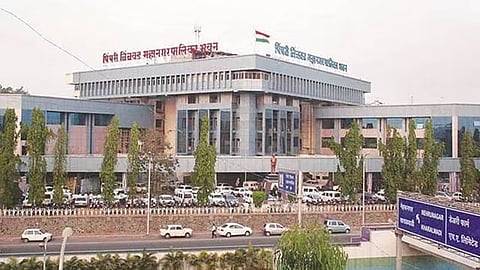Pimpri-Chinchwad: Determination to end the dowry system, united fight against perversions in marriage by all communities
The tragic death of Vaishnavi Hagavane has sent shockwaves not just through the Maratha community, but across all sections of society. In its aftermath, voices from various communities have risen in unison, calling for an end to outdated and exploitative practices within the institution of marriage. In a historic and unprecedented gathering held in Pimpri-Chinchwad, leaders, activists, and youth from communities such as Maratha, OBC, Mali, Bara Balutedar, and others came together to declare a collective stand—demanding change and initiating a cultural revolution in matrimonial customs.
Historic Resolution Passed by Social Organizations
During the gathering, participants unanimously resolved to reject the dowry system and to actively oppose extravagant spending, social pressure, and showmanship associated with weddings. The meeting marked the beginning of a movement aiming to restore dignity and simplicity to matrimonial events.
A concrete action plan was also unveiled. “We will form village-level and youth committees,” the organizers announced. “These committees will not only monitor dowry practices but also guide youth towards economic self-reliance through entrepreneurship and skills development.”
Creating 'Ideological Terror' Against Dowry Demands
The participants didn't stop at symbolic gestures. A bold declaration was made to instill a kind of “ideological terror” in the minds of those who still encourage or demand dowry.
“This practice may no longer be openly discussed, but it still survives in hidden forms. Those who believe they can demand dowry without consequences should be afraid—we're creating a movement of ideas that will hold them accountable.”
Rejection of Wasteful Expenditures
Attendees also condemned the pressure to spend excessively on weddings—on jewelry, lavish meals, expensive venues, and borrowed prestige.
“Taking loans to celebrate a wedding is nothing short of modern slavery,” a speaker said, urging families to prioritize financial wisdom over societal approval.
“Don’t celebrate Diwali by taking out loans,” one elder advised, highlighting the importance of living within one's means.
An Inclusive Social Movement
Importantly, this was not a community-specific initiative. Representatives from nomadic and denotified tribes, Dalits, OBCs, and tribal communities were present, turning the gathering into a broad-based social movement.
“This isn't just a Maratha issue. It’s a fight for justice and dignity for all,” a speaker emphasized. “Let’s put an end to the mindset of wedding competition—‘they had 5,000 guests, I want 6,000’. It must stop now.”
Youth Urged to Take the Lead
Senior mentors at the event advised the youth to take responsibility for initiating societal change.
“Don’t burn yourself trying to imitate hollow traditions. Be the change. You are the future,” they said, echoing the reformist spirit of leaders like Bhausaheb Phundkar.
What’s Next?
Following this impactful gathering, there is optimism that change is imminent. Village-level committees will soon be formed to provide skill development, entrepreneurship training, and counseling to young people. The ultimate goal is to redefine the institution of marriage—not as a spectacle, but as a meaningful union between two families.
The Pimpri-Chinchwad meeting may mark a turning point—a model for communities across the state and nation. If successful, it could serve as a lasting legacy for future generations, where weddings symbolize unity, not financial burden.

